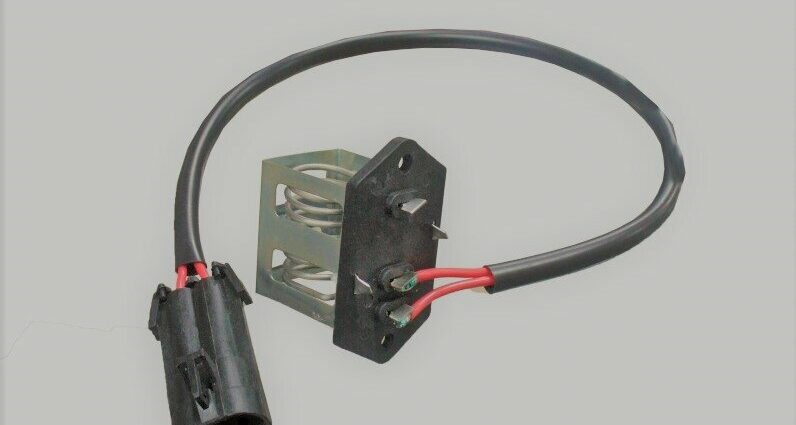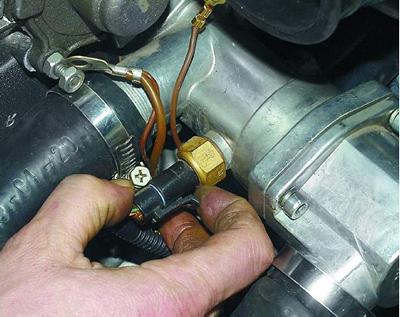
Symptoms of a Faulty or Faulty Cooling Fan Resistor
Common symptoms include the engine overheating, the cooling fan only running at certain speeds and never turning off.
Virtually all modern cars built today use electric cooling fans to help force air through the radiator and cool the engine. As soon as the engine coolant temperature sensor detects that the engine temperature has exceeded an acceptable level, the cooling fans will be activated to cool the engine. Many vehicles are equipped with cooling fans that operate at multiple speeds. This is made possible by passing their power through the cooling fan resistor. The cooling fan resistor is an electrical resistor that limits the power of the fan in stages so that the fan can run at different speeds depending on the requirements of the cooling system. Because the power to the cooling fan is sometimes routed through the cooling fan resistor, when it fails or has any problems, it can cause problems with the fans working properly, which can lead to overheating. Usually, a bad cooling fan resistor causes several symptoms that can alert the driver to a potential problem that needs to be fixed.
1. Engine overheats
One of the first symptoms of a potential problem with the cooling fan resistor is that the engine is overheating. If the cooling fan resistor fails or has any problems, it can cause the cooling fans to lose power, which can lead to overheating. Any overheating problem should be addressed as soon as possible to avoid possible engine damage.
2. Cooling fan speed issues
Another sign of a possible problem with the cooling fan resistor is problems with the speed of the cooling fan. If the resistor breaks or any problems occur, it can cause the fans to only run at certain settings. The cooling fan resistor is designed to stagger the power to the fans so that the fans can run at different speeds. If any of the individual steps or switches fail, this will disable the cooling fans from running at that speed setting. You may notice that the cooling fans only run at one speed, whereas they used to run at two or more.
3. Cooling fans never turn off
Another sign of a potential problem with the cooling fan resistor is constantly running cooling fans. If the resistor shorts out or fails, it can cause the cooling fans to stay on even when they shouldn't. In some cases, the cooling fans can even stay on when the car is off and create a lot of parasitic drain that eventually kills the battery.
The cooling fan resistor is an important component as it is one of the components that directs power to the cooling fans. For this reason, if you suspect that your cooling fan resistor may have a problem, have your vehicle checked by a professional technician such as AvtoTachki to determine if your vehicle needs a cooling fan resistor replacement.

